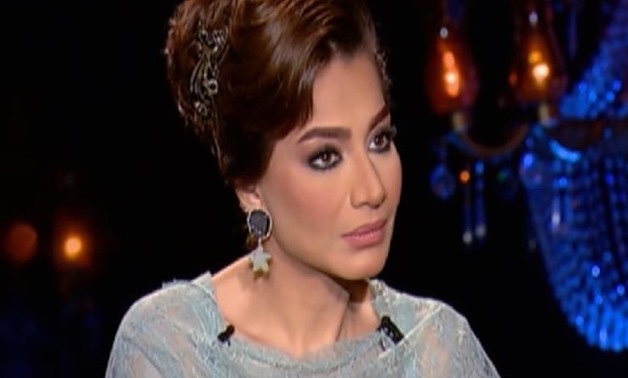
File- Basma Wahba.
CAIRO - 8 June 2019: Love her or hate her Basma Wahba and her program 'Sheikh Al-Hara' have been the talking point of Ramadan over the past three years; a program that relies heavily on scandals and cheap scoops that serve nothing to the general benefit apart from exposing the private matters of celebrities who in reality should know better than be associated with such a program.
Some would argue that the success and the huge commercial revenue that has been associated with 'Sheikh Al-Hara' is a clear sign that the program is giving the audience what they want, judging from the amount of viewers that tune in daily during the month of Ramadan to see the latest scandal that is about to be revealed.
But the question here, should we always give in to the viewer's demands? So if a segment of the audience want indecent content or even porn should the media satisfy their demands? Surely it is the role of the media industry to educate and rise the cultural knowledge of the average viewer not serve their whims which is damaging the social structure of our society.
Therefore the decision to stop the program for a month and the dismissal or resignation of Basma Wahba is the right step in correcting an error that should have never been allowed to air for the past few years.
The halting of the program came after two controversial interviews yet it is not clear which one precisely triggered the backlash.
The first is Maged Al-Masry racist comments about women from Africa which did anger many especially when Wahba found it funny and started laughing, rather than either bringing Al-Masry's attention to the insult he is directing at her fellow women and at black females in general, or she could have requested the editorial team to edit it out.
Is this what we are teaching people, that discrimination and racial views are funny? The second interview is Yasmeen Al-khatib where she blatantly attacked the film director Khaled Youssef which again Wahba added her own touch by claiming that Al-Khateeb's marriage to Youssef was a curse.
But for anyone that has been following the program and Wahba and getting frustrated by its content will know that there are many incidents which would have warranted the halt of the program; here are just five facts that supports our claim.
1) Wahba's insistence on bringing names of certain celebrities into every episode of her show, even when they have no connection whatsoever to the guest, names such as Khaled Youssef, Mohamad Ramadan, Amr Waked, Khaled Abu Naja, Bassem Youssef and Tawfik Okasha are almost regulars with her clear intention to provoke the guest to attack all except Okasha whom she does defend.
Surly a professional TV presenter should be more objective and not use her programme to attack public figures regardless of the differences she has with them.
2) During last season Sheikh Al-Hara, Wahba asked Samer Sabry “why are you not married, its the natural thing to do or do you not like women”.
How can anyone invades the privacy of a well established star to the extent she is even alluding to him being homosexual.
In a leaked episode of this season (which technically has been banned) she asks Tamer Habib why he is not married and that he should because it is the best and most natural thing. Spare a thought for the millions of single viewers who might want to get married but can't how would they feel? That they are all abnormal.
3) In this season episode Wahba accused the actress Nahid Al-Saba'ai of being 'cuckoo' as in 'crazy', all because Al-Saba'ai expressed how she still struggles with the loss of her brother and father and how she copes with grief by talking to them or to their photos, which actually anyone who has experienced the loss of loved ones will relate to completely.
For Wahba to make a mockery of someone's personal grief and at mental health in general is quite alarming as Arab society don't talk about their grief or anxiety or depression because they fear the exact reaction that Wahba demonstrated; being labelled crazy.
4) The slanging match between Somyea Al-Khashab and Ahmed Saad instigated by Wahba encourages viewers not just interfere in celebrities very private life but makes the exposure of scandals a norm on TV.
Plus in the episode of Al-Khashab, Wahba revealed that Saad had asked her to promise not to bring Al-Khashab to the Show, why announce such a private request, is it to make Saad look guilty and tarnish his image which ultimately increased her share of the audience for the two part interview with Al-Khashab and more importantly how can anyone trust her again to keep future promises?
5) The inclusion of politics in every episode in a show that is essentially about celebrities in the TV, music and film industry is quite baffling. For a decade now the arab world has been divided by politics why create more tension and division when it is the media's job to promote unity.
There are many more examples to quote and these were just few but what is clear that putting a stop to the show might have come a bit late but it has at least stopped further damage and corruption to the Egyptian society.

Comments
Leave a Comment